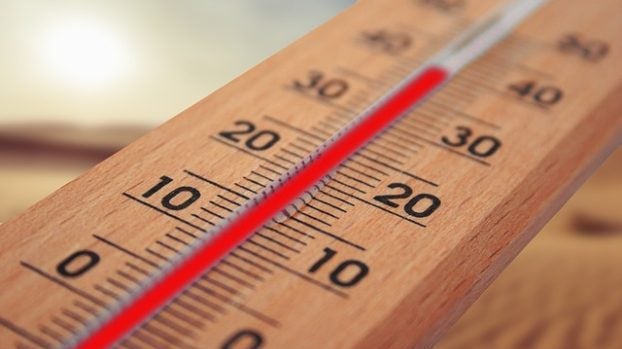Two coronavirus cases pop up in NOVA
Published 6:35 am Tuesday, March 10, 2020
|
Getting your Trinity Audio player ready...
|
As of Monday morning, there were two confirmed cases of the new coronavirus in Virginia with six tests pending and 139 people under public health monitoring.
The first case in the state was a United States Marine at Fort Belvoir in Fairfax County, according to media reports. The second case is a resident of the City of Fairfax in their 80s who recently returned from a Nile River cruise.
The threat is particularly severe for people over 80 years old. Dr. Robert Nash, who serves as the director of the Piedmont Health District for the Virginia Department of Health, said the fatality rate for patients 80 and older is 22%.
Trending
“Long-term care facilities are very much at risk,” Nash said.
When asked if he would advise an 85-year-old relative to go to church Sunday or stay home, Nash thought about the question awhile before saying he would probably advise them to stay home.
“If it were my mom, I would probably recommend her to stay home,” he said.
Longwood University is returning from spring break this week. A message from Longwood President W. Taylor Reveley IV said there are no indications any students or faculty have traveled internationally in areas of travel advisory zones. The message said the university has been in contact with its study abroad students. None of the students are in travel advisory zones.
Nash said key symptoms to look for are fever and a dry cough. A fever of between 100 and 102 degrees is seen in 87.9% of confirmed cases. The second-most frequently seen symptom is a dry cough which is reported in 67.7% of cases.
While Nash said it is good to be cognizant of these symptoms, they are the same symptom flu patients experience.
Trending
“We are still in flu season, “ Nash said. “If you’ve got a runny nose, the aches and the little low-grade fever and cough, think flu first. We can test for that. We have test kits for that everywhere.”
Washing hands frequently and staying away from crowds is key.
“As important as frequently washing ones hands is don’t touch your face. Don’t touch your eyes, your nose or your mouth,” Nash said. “In addition to that, repeated cleaning of surfaces that you often come in contact with: countertops, desktops, computer keypads, automated banking kiosks, grocery cart handles.”
For those who do get the virus, the downtime is not the typical couple of days commonly seen with flu cases. Nash said a mild case of the virus will take 14 days to get over. More severe or critical cases can last three to six weeks.
The incubation period for COVID-19 is anywhere from two days to two weeks.
“You can be contagious even before you become symptomatic,” Nash said.
The 139 people in public monitoring are those who may have traveled overseas to a country where the virus is prevalent and are being given advice on how to monitor themselves from home.
Testing for the virus is a two-pronged process. All tests are sent to Richmond at the division of consolidated laboratories, according to Nash. For cases that test negative, no further action is taken.
“If you’re positive there (Richmond), it will be forwarded to the CDC for confirmation before that is finally determined whether it is a true positive or not,” Nash said.
The CDC currently has a two to three day turnaround on tests so it could be several days before a positive test is confirmed.
“I think folks should be aware that everything they did in terms of increased awareness and precautions that you would take for the flu, are going to be just as effective,” Nash said. “They’re the same precautions that you would take against COVID-19.
“Prevention is the most important thing that we can do right now.”





